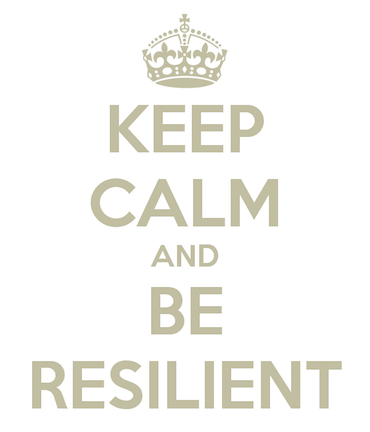The human capacity for resilience has always fascinated me. Everyone has it to varying degrees, and it is amazing to watch – personally and professionally.
Let’s examine the definition:
Resilience
- The ability to spring back.
- The capacity to recover quickly from difficulties.
- Toughness.
- Positive adaption to significant threats.
I have observed individuals in the workplace bounce back after:
- Someone else taking credit for their work/project.
- Losing a job.
- Being demoted or overlooked for a promotion.
- Being relocated and having to live away from family.
- Failing an exam or certification test.
- A public lambasting by the boss.
- Not receiving the support they need from family to make a major career change.
- Difficult reorganizations or takeovers.
- The list goes on…
It seems most of us want to see hope in and through any situation. We believe we will get to the other side. We may not like everything that happens on the journey but we know instinctively that we will survive and maybe even thrive. The question isn’t if we will survive, but how?
There are three choices when responding to difficulties:
- Longer rebound time – reacting negatively and strongly, hiding under the quilt a little longer before peeking out and beginning to pick up the pieces.
- Moderate rebound time – responsive to the situation but not overly negative or positive, reflecting on the situation before beginning to move forward.
- Rapid rebound time – resilient response to the situation, beginning almost immediately by going into problem-solving mode.
How you respond is impacted by more than one factor – your inherent personality, timing (Did it come on the heels of other challenges?), support system, and the outcomes through distresses in the past.
According to researchers at the University of Guelph (located in Canada, but I kind of liked the close association to ‘gulp’ which is what we may do when something catches us unaware), “Resilience arises when the individual is able to make use of internal resources (coping skills, attitude, and planning competence) and external resources (physical necessities, family, social and professional supports, and relevant expert advice).”
Take stock of your resources (both internal and external). In order to stay resilient you need to maintain these resources and hone your ability to stay calm through adversity, evaluate your status, and make clear decisions to emerge stronger on the other side.
Think of some examples where you have successfully navigated crashes in your life. Think of some examples where you have seen others do so.
Here is one example of a successful rebound. I met a young man when I was volunteering with unemployed folks several years ago. He was an M.D. As he graduated from medical school, completed his residency and internship, he discovered that practicing medicine was not something he wanted to do long-term. Here was a career that he had invested in heavily that was not working for him. He tried to make it work but his interest in being a doctor had changed. Ack! What could he do? He quit his job and took some time to research and think about his next step. His ‘aha’ moment came when he discovered that he was passionate about virtual medicine. He wanted to be a part of this cutting edge use of technology in the medical field. Virtual medicine involves the use of technology, webcams, and electronic medical records to serve the patient in their home or even in prison or when traveling. His interest occurred at a time that virtual medicine was in its infancy. He completed in-depth research and found a company in the DC-area that had the values and goals he wanted to embrace. He began a campaign to work at that company. Sooner than you would think, they employed him. He had met another job-seeker who he fell in love with and married. They relocated to DC together and he enthusiastically and happily embarked on a new career.
What is your resilience story? How resilient are you? If interested in exploring further, we offer personality assessments (Workplace Big Five Assessment) or for a quick look you can take the Harvard Business Review resilience assessment – Click Here.
It is gratifying to think that we as a human race are resilient. I hope you don’t have to test your resiliency too soon!
“Persistence and resilience only come from having been given the chance to work through difficult problems.”
– Gever Tulley
BRH
P.S. I wrote this before recent Paris terrorist attacks. My guess is that each individual will take a shorter or longer time to recover, if they ever do, based on how close they were to the mayhem – geographically (Were they there?) and personally (Did they know a friend or family member who was killed or injured?). The world will be watching as Parisians demonstrate their resiliency and resolve to move forward.


